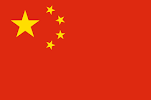On Monday, China passed controversial cybersecurity legislation allegedly in response to hacking and terrorism threats. The law includes provisions that require the storage personal information and important business data, making companies concerned that they will be required to hand over their intellectual property. Yang Heqing, an official on the National People’s Congress standing committee, stated that the legislation has been enacted to address China’s national security and development issues. Zhao Zeliang, a director of the Cyberspace Administration of China, stated that the law is in accordance with international trade rules.
The legislation is drawing criticism from various rights advocates. In August, Global business groups had urged Beijing to amend the legislation. James Zimmerman, the chairman of the American Chamber of Commerce of China, stated that the vague provisions of the legislation could result in broad interpretations by regulation authorities. [More from The Guardian]
